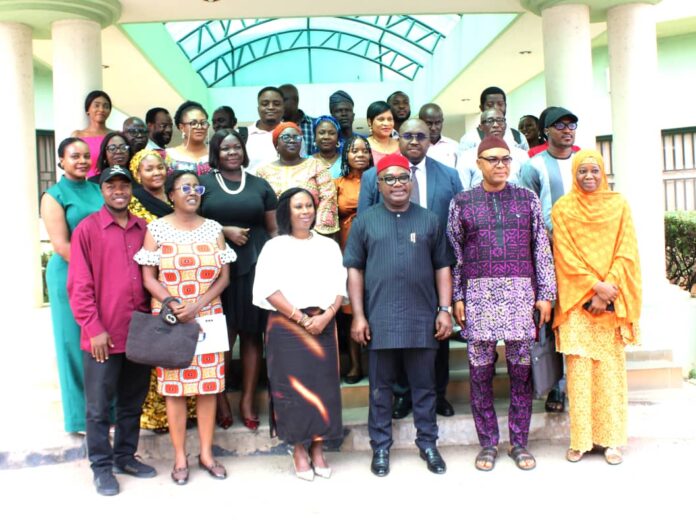The United Nations and the National Human Rights Commission (NHRC) have raised concern over the surge of hate speech and divisive rhetoric in Nigeria’s political space as the 2027 general elections draw closer.
Speaking at a high-level roundtable on Ethical and Hate-Free Politics in Nigeria on Monday, the UN Resident and Humanitarian Coordinator, Mohamed Malick Fall, warned that disinformation and online hostility are eroding trust in democratic institutions and fueling social divisions.
“Hate speech strips people of their dignity and undermines the very foundation of democracy,” Fall said. He urged political parties to “lead with policies and ideas, not insults or divisive rhetoric,” and adopt codes of conduct that reject hate speech. He also called for greater cooperation with media and digital platforms to curb the spread of harmful content and amplify factual information.
The Chairman of the Independent National Electoral Commission (INEC), Prof. Mahmood Yakubu, in a message delivered by Sulaiman Ibrahim (SAN), cautioned that inflammatory language in politics threatens national cohesion and peaceful participation. He stressed that hate speech, misinformation, and unethical practices not only endanger electoral credibility but also the unity and stability of the country.
Yakubu noted that Section 92 of the Electoral Act 2022 prohibits hate speech, with sanctions provided in subsections (7) and (8). He added that beyond vote buying arrests, INEC has successfully prosecuted offenders in three states in partnership with law enforcement agencies. According to him, political communication must be anchored on issue-based campaigns, fairness, and mutual respect to strengthen democracy.
NHRC Executive Secretary, Dr. Tony Ojukwu (SAN), described hate speech as “a major threat to democracy” and outlined steps the commission is taking, including establishing a National Hate Speech Register, training staff on monitoring and enforcement, and drafting a Charter on Ethical and Hate-Free Politics for political parties.
“From vote buying to divisive rhetoric, unethical political communication is weakening public trust and threatening democratic consolidation,” Ojukwu said. “Democracy thrives not only on the ballot but in the values we uphold between elections.”
He stressed the need to safeguard pluralism and ensure inclusive participation for women, youth, persons with disabilities, and minority groups.
The roundtable, co-hosted by NHRC to mark the International Day of Democracy, carried the theme ‘Democracy and Inclusion in an age of insecurity,’ aligning with the global focus on ‘Achieving gender equality, action by action.’
Participants included political party representatives, media professionals, civil society leaders, and international partners, who were urged to commit to peaceful, respectful, and inclusive engagement in the lead-up to the elections.
Sessions covered topics such as Hate Speech, Human Rights and Elections in Nigeria’s Politics: Trending and Impact, moderated by Adwoa Kuffour (UN) and Hilary Ogbonna (NHRC), and Hate Speech Standards and Accountability, led by Mojirayo Ogunlana of the Nigerian Bar Association.

